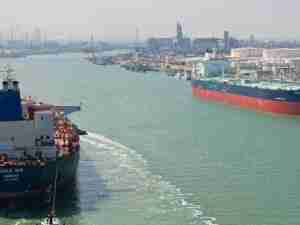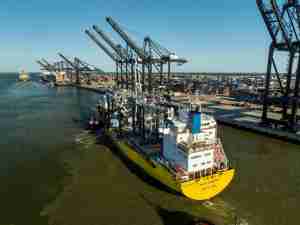Longshoremen’s strike halts work at Port of Baltimore
By: Reuters | Oct 16 2013 at 02:36 PM | Ports & Terminals
“There is no cargo being handled or ships being worked at the public marine terminals at the port of Baltimore,” said Richard Scher, a spokesman for the Maryland Port Administration. “The port of Baltimore, regrettably, is the only port from Maine to Texas that is not working today.”
The strike by the International Longshoremen’s Association Local 333 began Wednesday morning with groups of strikers gathering at port entrances carrying signs that read, “No contract, no work,” according to local media reports.
Contract negotiations with the Steamship Trade Association of Baltimore, which represents management, stalled Tuesday night, Scher said.
Union officials could not be reached for comment. The Baltimore Sun quoted striking longshoremen as saying their differences with management were too numerous to list.
“We’re dealing with tons and tons of weight, and you can die in an instant,” longshoreman Omahie Mitchell, 33, told the newspaper. “We’re tired of being violated.”
Scher said dock workers at the port - about 2,000 of the port’s 14,000 employees - are members of the International Longshoremen’s Association and are divided into four local chapters. Only Local 333 is striking, he said, but the other three chapters are supporting them by declining to cross their picket lines.
“Obviously, they’re very important to not only this port but to all ports,” Scher said, adding that the port administration “does not have a seat at the table” in the negotiations.
“We are strongly encouraging both sides to reach an agreement,” he said.
Five cargo ships are currently docked and “on standby” at the port, one of Maryland’s largest economic generators, Scher said.
The port ranks ninth among the nation’s 360 ports in terms of the dollar value of the cargo handled there, and ranks 11th in the weight of cargo handled, Scher said.










